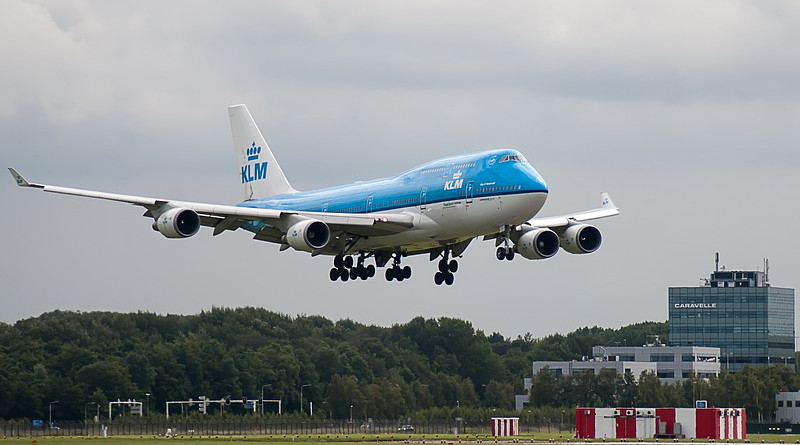Dutch Government Unveils KLM Rescue Plan
By EurActiv
By Sam Morgan
(EurActiv) — The Netherlands’ national airline, KLM, is set for a €3.4 billion bailout package should it meet certain employment, financial and sustainability targets, the Dutch government announced on Friday (26 June). It still requires regulatory approval from Brussels.
KLM was promised between €2-4 billion at the end of April, when both the Dutch and French governments pledged financial support to the Air France-KLM group. France’s €7 billion bailout was quickly approved by the European Commission’s competition regulators.
But the Dutch government embarked on tough negotiations, as lawmakers were in disagreement about what kind of conditions to set for the airline.
On Friday morning, ministers revealed a €3.4 billion package made up of €2.4 billion in state-guaranteed bank loans and a €1 billion direct loan.
The latter will be provided in tranches and last up until 2025, with each payment only dispersed after the government has judged that its conditions are being adequately fulfilled.
“This package is necessary to ensure that KLM and Air France can continue to fulfil the important role they play in our economies,” said Minister for Finance Wopke Hoekstra, who also warned that job losses will nevertheless “likely be unavoidable”.
“We have been trying to distribute the pain as fairly as possible in recent weeks,” the minister added. As part of the deal, senior staff that earn more than three times the average will be asked to forego 20% of their salary.
Until the state’s investment is repaid in full, no dividends will be paid out to shareholders and management will not be eligible for bonuses. Cost-cutting measures worth 15% will also have to be made.
KLM CEO Pieter Elbes said “this is a very important step and I express my gratitude on behalf of all KLM colleagues to the Dutch state and the banks for their confidence in our organisation and our future.”
The government also made it clear in its announcement that it expects KLM and Air France to both undergo restructuring.
Strings attached
The €3.4 billion rescue deal is dependent on KLM making changes to the way it does business, including reducing the number of night flights from the country’s main hub at Schiphol.
However, in a letter to parliament, government ministers do not establish a timeframe for the reduction of night flights, although it does elaborate that it will be a stepped approach to cull them from 32,000 to 25,000.
Making those cuts will be dependent on the use of a nearby airport as a spillover hub and more substitutions of flights with train journeys to cities like Brussels and Dusseldorf, the letter adds.
KLM will also have to cut CO2 per passenger-kilometre in half by 2030 under the agreement, although using such a metric could allow for emissions to actually increase as it does not cap total output.
The Austrian government’s €600 million bailout of its national airline has been praised for establishing tighter green goals, which also includes a ticket price floor.
Schiphol airport is one of the busiest hubs in Europe and a major generator of employment. As part of the agreement, the government is extending its termination notice period from nine months to five years, in order to reduce any uncertainty about its hub-status.
There is little of substance in the agreement about passenger rights and whether KLM should spend the money on refunding passengers that request reimbursement. However, the Dutch government recently confirmed it would tell its regulator to start enforcing EU rules after previously ignoring them.
Desperately seeking Brussels’ approval
The Dutch government made a pre-notification to the Commission in order to assess whether its package would flout state aid rules. A full notification was made to the competition regulator earlier on Friday.
On Thursday (25 June), the EU executive gave the green light to Lufthansa’s €9 billion bailout after a lengthy assessment and negotiation period. The KLM package is likely to have an easier time, as the Dutch state is already a shareholder in the firm.
Both France and the Netherlands own 14% of the airline group, while the German government will come on board as its flag-carrier’s largest shareholder with 20%. That development was one of the main factors to trigger Commission concerns.
The CEO of low-cost flyer Ryanair, Michael O’Leary, nevertheless urged the EU executive to “block this subsidy doping to KLM, which will further reduce competition and consumer choice in the Dutch and French markets.”
“This Dutch government subsidy is also bad news for competition and consumer interests as it will further delay the necessary reforms at the bloated Air France-KLM,” he added in a statement.
The virus outbreak’s devastating impact on the aviation industry has prompted governments to shell out more than €30 billion in aid so far.

